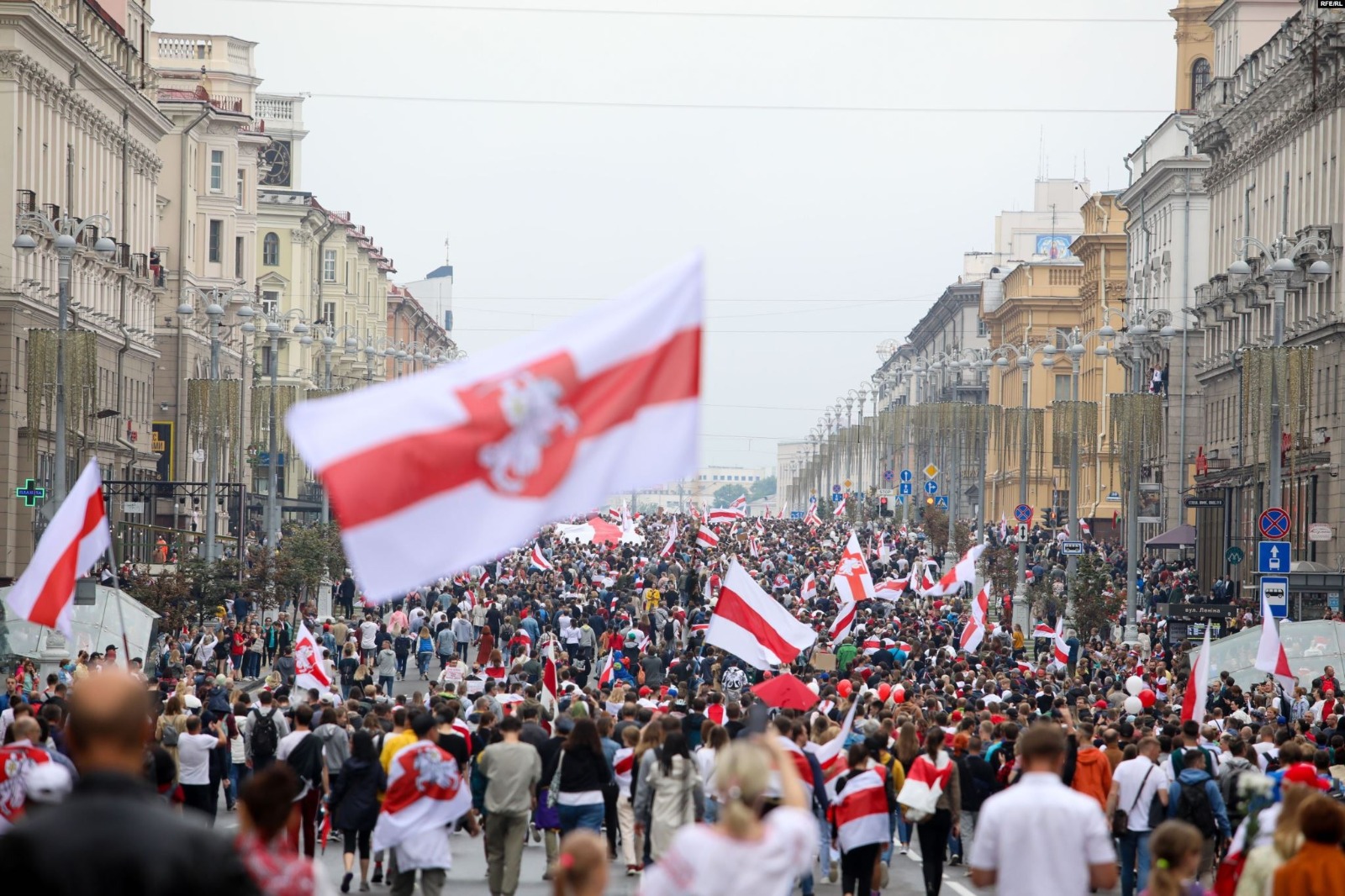This article was originally published in the Norwegian-language newspaper Verdens Gang on 26 October 2020. It was co-authored by Maria Dahle, Director of Human Rights House Foundation (HRHF) and Bernt Hagtvet, professor of political science at Bjørknes University College and Chair of the Board, HRHF.
It has become a commonplace to say that democracy is in crisis. But there are counter-forces. What is the situation in Belarus now? Is there anything we can do from Norway? Those are the questions. Norwegian human rights organizations can contribute with not insignificant experience. For more than two decades, we at HRHF have been part of a network of human rights organizations. There, our special task has been to create houses where local human rights activists can seek refuge and work. We have supported such houses in a number of countries across Europe. Human rights houses are strongholds of democracy — annoying stones in the shoes of despots, and places where people who need help in struggles against authorities can get it. Our weapons are the law and the word, and feet in peaceful procession. And expertise about the international mechanisms protecting civil and political rights. The pattern is well known: authoritarian leaders must one day give up. Time is on our side.
Our partners for over 20 years are dignified. “If you do not get in touch with us tomorrow, we are under arrest,” we were told the other day. Our colleagues tell us they might disappear from one day to the next. They live on the knife’s edge. But the crisis also increases focus. Despite peaceful demonstrations being arrested and met with brutal violence, hundreds of thousands continue to protest in the streets across the country. Mr Lukashenko has been acting systematically and brutally for 26 years. But now the question presents itself as to whether the international community can influence developments in Belarus.
Through our partners and their close network on the ground, we know that the dissatisfaction coming to the surface is real. Lukashenko has gone too far. The protesters in the streets come from broad sectors of the population: People working in the cultural sector, in IT or private business, as well as the young generation. They belong to those who were no longer satisfied with the social contract Lukashenko was offering them: A frozen type of stability in exchange for living under fear and control.
The protest movement consists of new faces, and is decentralized and peaceful, like the protests in Hong Kong. In other countries in transition, such as Tunisia, civil society has played an important role in bringing about long-term change. That is why we are now witnessing Lukashenko trying to arrest key players from the small but meaningful civil society in Belarus. Then it is good to know that there are layers of them ready to take over.
The police forces have targeted journalists, and the internet has been restricted. Nevertheless, ordinary citizens have succeeded in getting information out.
The human rights organizations and the journalists’ systematic documentation of the events have been crucial to the international reactions: The EU recently called for new, smart sanctions against 40 people within the Belarusian power apparatus who have been responsible for rigging the elections and the brutal arrests that followed. In September, the UN Human Rights Council adopted a resolution giving the High Commissioner a mandate to investigate serious human rights violations in Belarus. At the same time, an expert group in the OSCE is examining the situation.
We hear from our partners that these new sanctions against individuals are effective, and this gives cause for optimism. The sanctions help make it visible who benefits from the way the country is run. Following previous rounds of sanctions from the EU, there was a superficial easing over the last two years that made it possible to move more meeting and seminar activities into the country. Using such force against the Belarusian authorities has been effective in the past. Overall, the new international measures send important signals that those responsible for abuse will not escape: There will be no impunity in Belarus.
The Norwegian authorities have followed a principled line by being clear in their statements and by showing support for the Belarusian democracy movement. This should be continued by Norway not only adopting the same sanctions as the EU, but together with the other Nordic and Baltic countries be a driving force in expanding the list. Norway should also continue to pressure the Belarusian authorities to start a national investigation into incidents of torture. Our call to the Norwegian authorities is clear: The parliament must ensure continued support for civil society in Belarus and ensure that long-term plans are implemented with neighboring Nordic countries to put in place a comprehensive strategy for further strengthening democratic forces.
Freedom of expression is a fundamental right, just like the right to freedom of association. Through continued commitment to human rights in Belarus, Norway would not only protect universal values in a principled way, but also its own security. As stated in the Ministry of Foreign Affairs’ budget proposal, it is in Norway’s interest to help underpin international law and ensure respect for human rights, especially at a time when there are unstable situations near our region. As a small state, Belarusian democracy matters to us.
In addition to Lukashenko, other authoritarian leaders must also be closely monitored. The threat of international reactions must always be there. Thus, the situation in Belarus is also significant for other countries in the region at the tipping point between dictatorship and freedom. Regional neighbors perceive signals from the international community’s ability and willingness to support human rights in Belarus. Norway showing its engagement and unity with the international community in a principled stand for human rights in Belarus is therefore not just a defence of our values, but also an investment in our own security and future.
Top photo: Radio Free Europe / Radio Liberty





